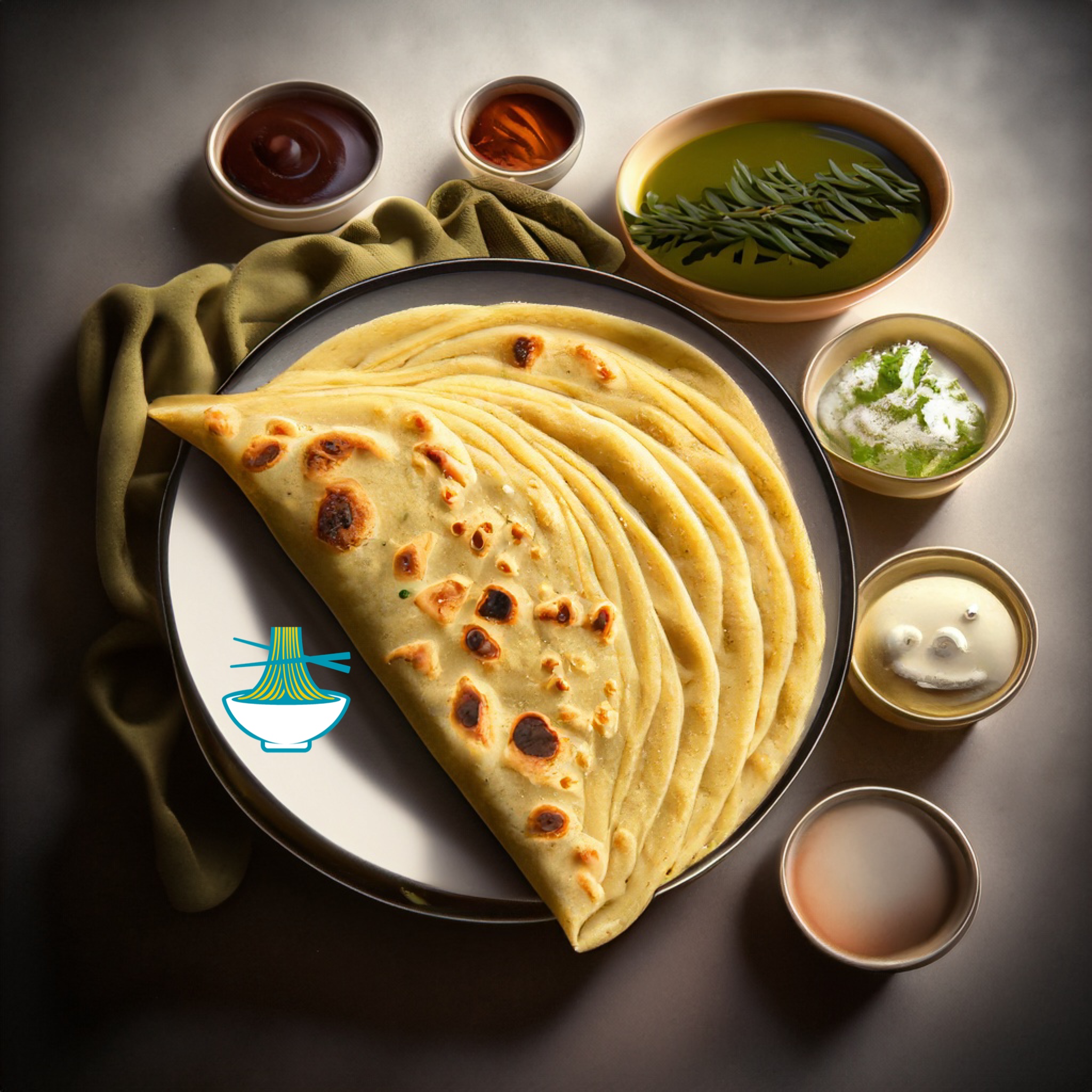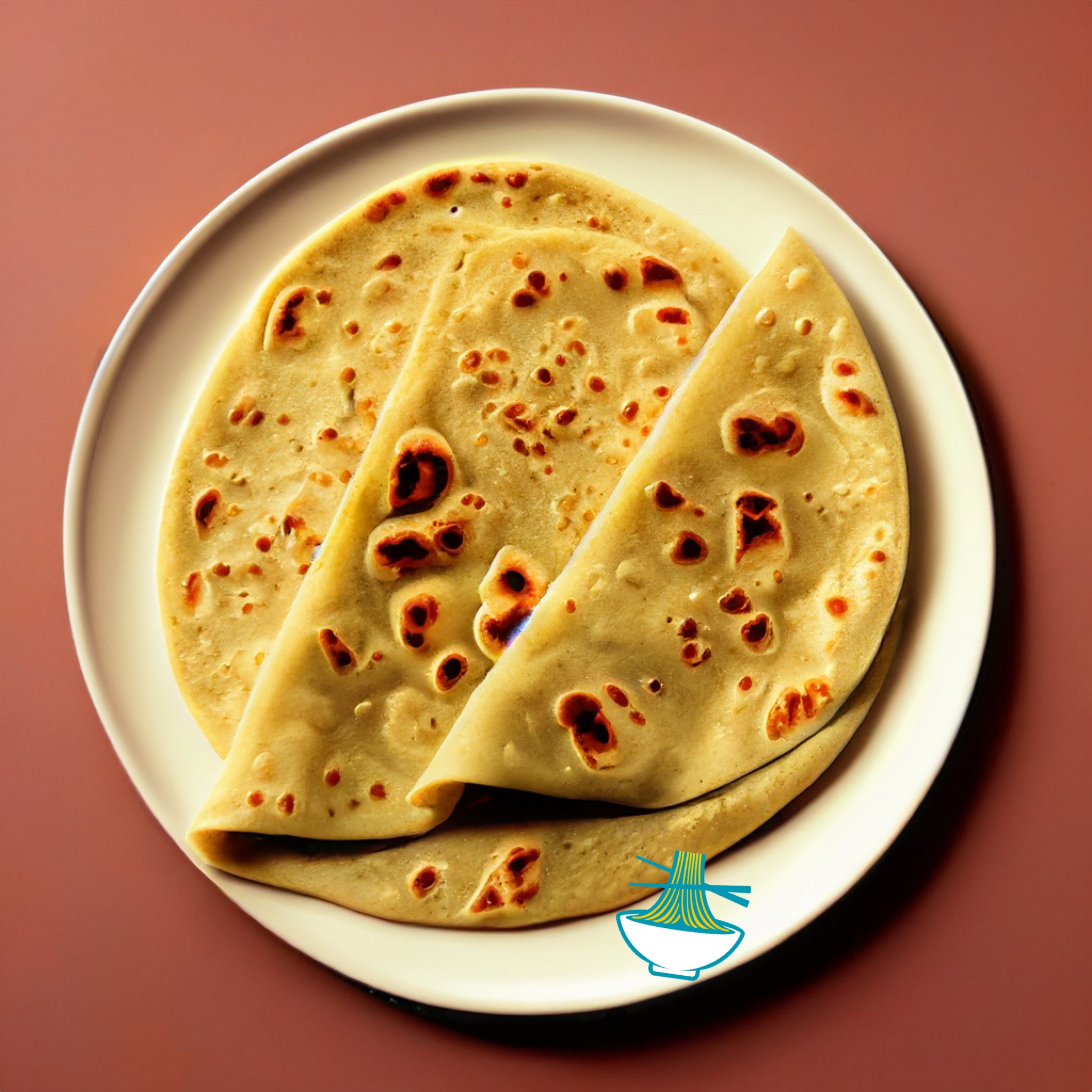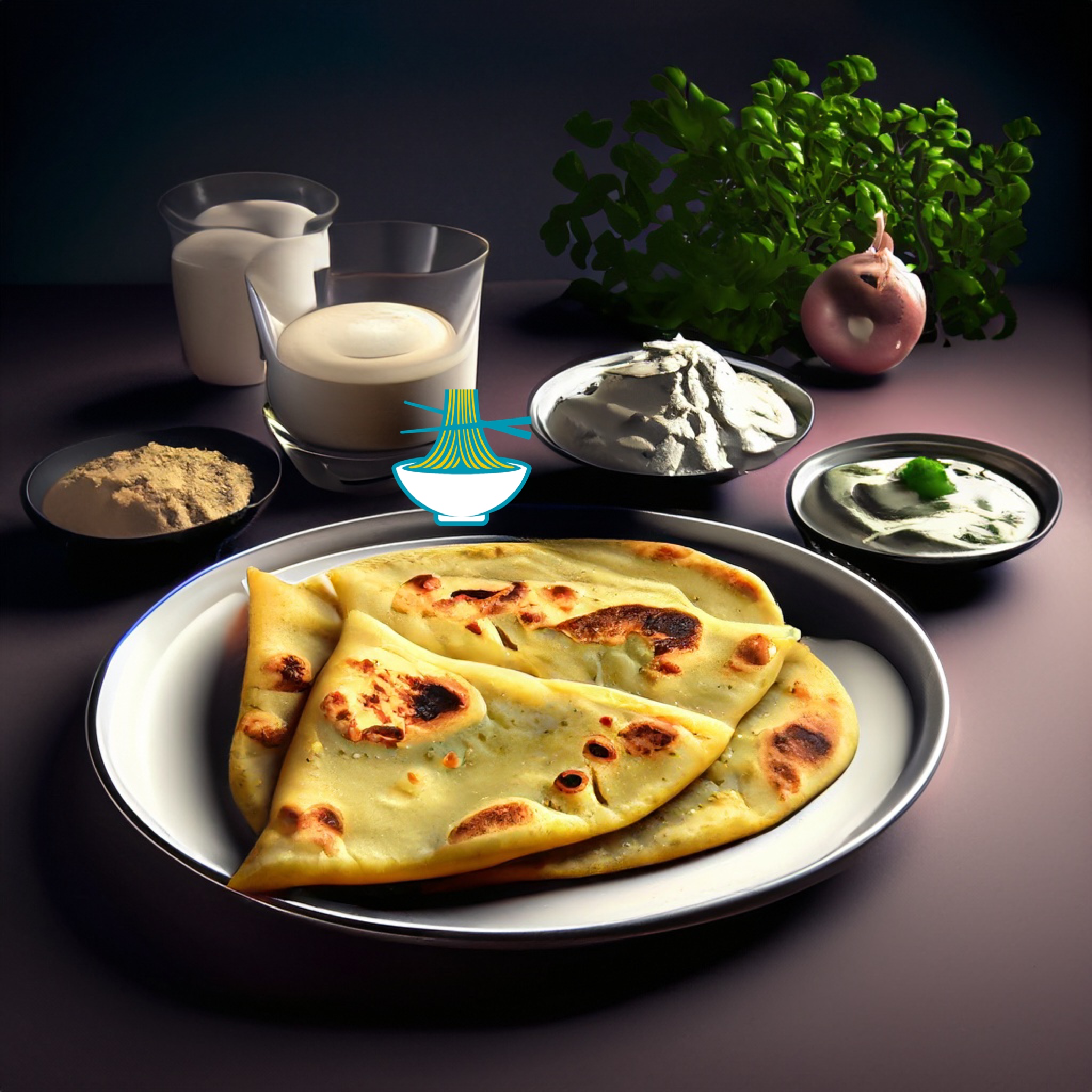Parathas are a beloved Indian flatbread characterized by their flaky, layered texture and versatility. Originating from the Indian subcontinent, they can be enjoyed plain or stuffed with various fillings, making them a staple in many households. Parathas are commonly served as a breakfast or lunch dish, often paired with yogurt, pickles, or chutneys. Their delightful combination of taste and texture has made them popular not only in homes but also at street stalls and restaurants.
The history of parathas dates back centuries in India, where they have evolved into numerous regional varieties. Traditionally, they were made by rolling out dough, layering it with ghee or oil, and folding it to create multiple layers. This method produces the characteristic flakiness that defines a good paratha. Over time, parathas have gained popularity beyond India, becoming a staple in Pakistani, Bangladeshi, and Nepalese cuisines as well. The versatility of parathas has led to various fillings, including spiced potatoes, paneer, and even sweet ingredients, showcasing the creativity of Indian cooking.
Ingredients
- 2 cups whole wheat flour
- 1 teaspoon salt
- 1 cup water (adjust as needed)
- Oil or ghee for cooking
- Filling ingredients of your choice (e.g., mashed potatoes, grated cheese, minced meat)
Method
1. In a mixing bowl, combine whole wheat flour and salt. Gradually add water, mixing until the dough forms.
2. Knead the dough for about 10 minutes until smooth and elastic. Cover with a damp cloth and let it rest for at least 15 minutes.
3. Divide the dough into equal-sized balls (about the size of a golf ball).
4. Roll each ball into a thin disc (about 1/8 inch thick).
5. Place a spoonful of filling in the center of each disc.
6. Bring the edges together to cover the filling, forming a ball.
7. Flatten the ball and roll it out again into a disc.
8. Heat a griddle or non-stick pan over medium-high heat.
9. Place the paratha on the griddle and cook for about 1 minute on each side, brushing with oil or ghee as needed.
10. Repeat with remaining dough balls.
Nutrition Value:
1. 2 cups whole wheat flour
- Calories: 728
- Carbohydrates: 152g
- Protein: 24g
- Fat: 4g
- Sodium: 2mg
- Cholesterol: 0mg
- Vitamins: B vitamins (B1, B3, B6)
- Minerals: Iron (6mg), magnesium (178mg), zinc (3mg)
- Nutritional benefit: Whole wheat flour is high in fiber, supporting digestion and heart health. It also provides iron for oxygen transport and B vitamins for energy metabolism.
2. 1 teaspoon salt
- Calories: 0
- Carbohydrates: 0g
- Protein: 0g
- Fat: 0g
- Sodium: 2325mg
- Cholesterol: 0mg
- Vitamins: None
- Minerals: Sodium
- Nutritional benefit: Salt helps balance fluids and maintain nerve and muscle function. However, it should be consumed in moderation to avoid health issues like high blood pressure.
3. 1 cup water
- Calories: 0
- Carbohydrates: 0g
- Protein: 0g
- Fat: 0g
- Sodium: 0mg
- Cholesterol: 0mg
- Vitamins: None
- Minerals: None
- Nutritional benefit: Water is essential for hydration, aiding in digestion and nutrient absorption.
4. Oil or ghee for cooking
- Calories: 120 (per tablespoon of oil), 135 (per tablespoon of ghee)
- Carbohydrates: 0g
- Protein: 0g
- Fat: 14g (oil), 15g (ghee)
- Sodium: 0mg
- Cholesterol: 0mg (oil), 33mg (ghee)
- Vitamins: Vitamin E (oil), vitamins A, D, and E (ghee)
- Minerals: None
- Nutritional benefit: Oil or ghee adds essential fats that aid in absorbing fat-soluble vitamins. Ghee also provides vitamins A and D, supporting immunity and bone health.
5. Filling ingredients
- Mashed potatoes:
- Calories: 130 (for 1/2 cup)
- Carbohydrates: 30g
- Protein: 3g
- Fat: 0g
- Sodium: 5mg
- Cholesterol: 0mg
- Vitamins: Vitamin C, B6
- Minerals: Potassium, magnesium
- Nutritional benefit: Potatoes are a good source of carbohydrates for energy and provide vitamin C and potassium, which benefit heart health.
- Grated cheese (cheddar):
- Calories: 110 (for 1/4 cup)
- Carbohydrates: 1g
- Protein: 7g
- Fat: 9g
- Sodium: 180mg
- Cholesterol: 30mg
- Vitamins: Vitamin A, B12
- Minerals: Calcium, phosphorus
- Nutritional benefit: Cheese offers protein and calcium for bone health and vitamin B12 for nerve function.
- Minced meat (ground beef, 85% lean):
- Calories: 213 (for 3 oz)
- Carbohydrates: 0g
- Protein: 22g
- Fat: 13g
- Sodium: 76mg
- Cholesterol: 78mg
- Vitamins: B12, B6
- Minerals: Iron, zinc
- Nutritional benefit: Minced meat is high in protein and rich in iron and zinc, supporting muscle repair and immune health.





Comments